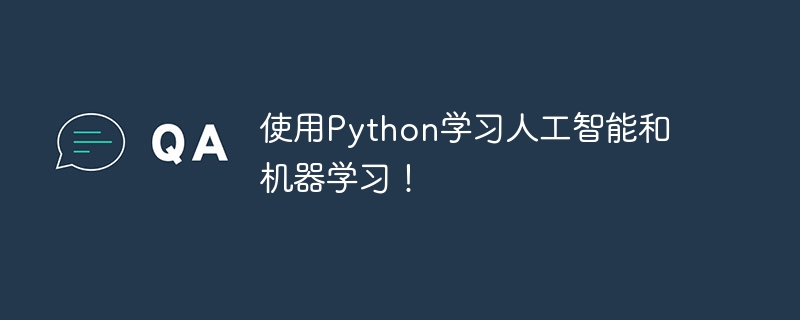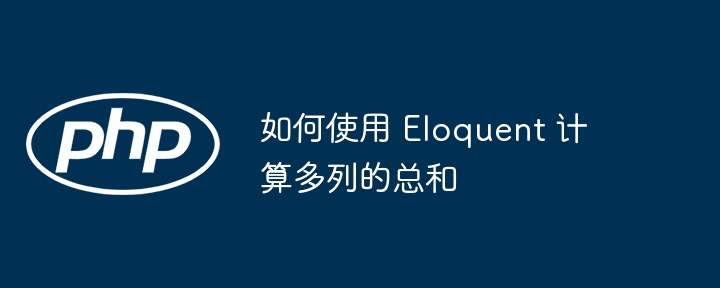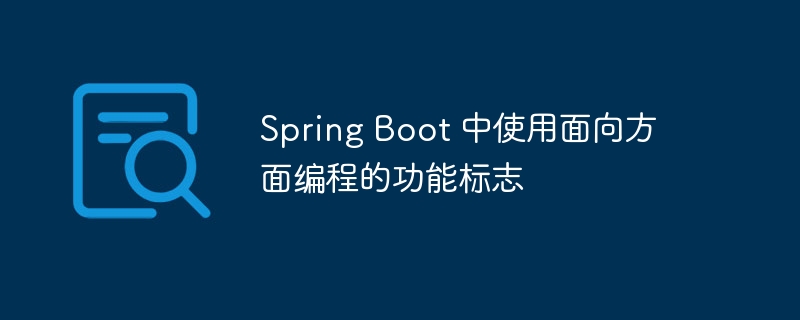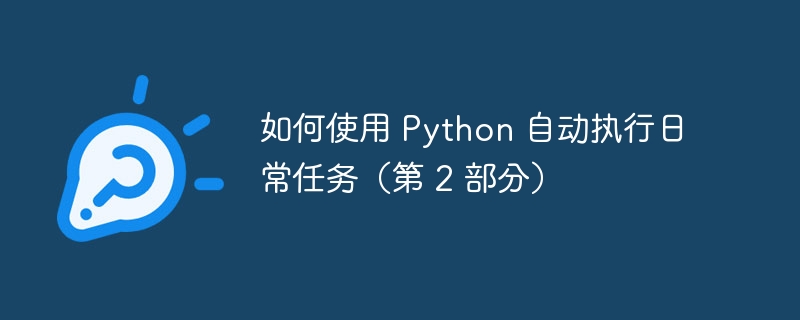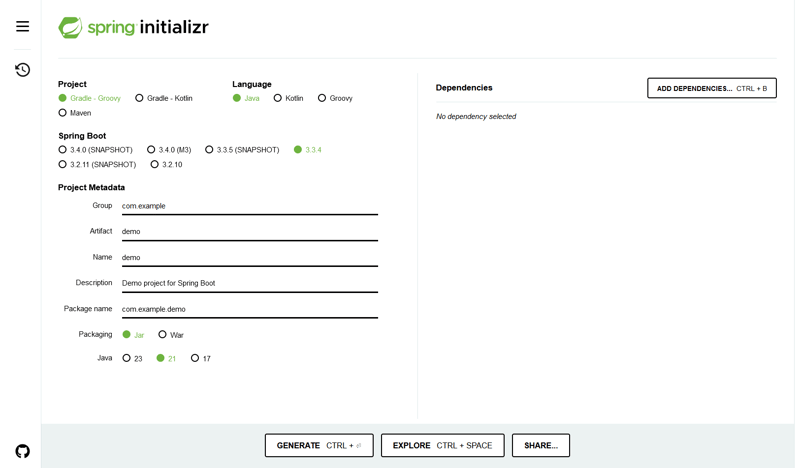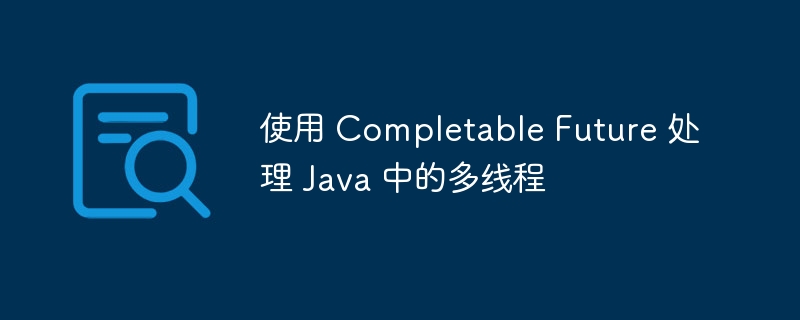
1. 理解完整的未来
completablefuture 是 java.util.concurrent 包的一部分,提供了一种以更具可读性和可维护性的方式编写异步、非阻塞代码的方法。它代表异步计算的未来结果。
1.1 创建一个简单的completablefuture
从 completablefuture 开始,您可以创建一个简单的异步任务。这是一个例子:
import java.util.concurrent.completablefuture;
public class completablefutureexample {
public static void main(string[] args) {
completablefuture<void> future = completablefuture.runasync(() -> {
system.out.println("running asynchronously...");
// simulate a long-running task
try {
thread.sleep(2000);
} catch (interruptedexception e) {
e.printstacktrace();
}
});
future.join(); // wait for the task to complete
system.out.println("task completed.");
}
}
</void>
- completablefuture.runasync() 异步执行任务。
- future.join() 阻塞主线程,直到任务完成。
演示结果:
running asynchronously... task completed.
1.2 将 completablefuture 与结果结合使用
您还可以使用completablefuture返回异步任务的结果:
import java.util.concurrent.completablefuture;
public class completablefuturewithresult {
public static void main(string[] args) {
completablefuture<integer> future = completablefuture.supplyasync(() -> {
// simulate a computation
return 5 * 5;
});
future.thenaccept(result -> {
system.out.println("the result is: " + result);
}).join();
}
}
</integer>
- completablefuture.supplyasync() 用于返回结果的任务。
- thenaccept() 计算完成后处理结果。
演示结果:
the result is: 25
2. 组合多个completablefuture
处理多个异步任务是一个常见的用例。 completablefuture 提供了多种组合 future 的方法。
2.1 将 future 与 thencombine 结合起来
您可以组合多个 completablefutures 的结果:
import java.util.concurrent.completablefuture;
public class combiningfutures {
public static void main(string[] args) {
completablefuture<integer> future1 = completablefuture.supplyasync(() -> 5);
completablefuture<integer> future2 = completablefuture.supplyasync(() -> 10);
completablefuture<integer> combinedfuture = future1.thencombine(future2, (result1, result2) -> result1 + result2);
combinedfuture.thenaccept(result -> {
system.out.println("combined result: " + result);
}).join();
}
}
</integer></integer></integer>
- thencombine () 组合两个 future 的结果。
- 使用 thenaccept () 处理组合结果。
演示结果:
combined result: 15
2.2 使用 allof 处理多个 future
当需要等待多个 future 完成时,使用 completablefuture.allof():
import java.util.concurrent.completablefuture;
public class allofexample {
public static void main(string[] args) {
completablefuture<void> future1 = completablefuture.runasync(() -> {
// simulate task
try {
thread.sleep(1000);
} catch (interruptedexception e) {
e.printstacktrace();
}
});
completablefuture<void> future2 = completablefuture.runasync(() -> {
// simulate another task
try {
thread.sleep(2000);
} catch (interruptedexception e) {
e.printstacktrace();
}
});
completablefuture<void> alloffuture = completablefuture.allof(future1, future2);
alloffuture.join();
system.out.println("all tasks completed.");
}
}
</void></void></void>
- completablefuture.allof() 等待所有给定的 future 完成。
- join() 确保主线程等待,直到所有任务完成。
演示结果:
all tasks completed.
3. completablefuture 的错误处理
处理错误在异步编程中至关重要。 completablefuture 提供了管理异常的方法。
3.1 使用异常处理异常
使用异常()处理异步任务中的异常:
import java.util.concurrent.completablefuture;
public class exceptionhandlingexample {
public static void main(string[] args) {
completablefuture<integer> future = completablefuture.supplyasync(() -> {
throw new runtimeexception("something went wrong!");
}).exceptionally(ex -> {
system.out.println("exception occurred: " + ex.getmessage());
return null;
});
future.join();
}
}
</integer>
- 异常 () 捕获并处理异常。
- 它允许您提供后备结果或处理错误。
演示结果:
Exception occurred: Something went wrong!
4.completablefuture的优缺点
4.1 优点
- 异步执行:高效处理并发运行的任务,而不阻塞主线程。
- 提高了可读性:与传统的回调方法相比,提供了一种更具可读性和可维护性的方式来处理异步代码。
- 丰富的 api :提供多种方法来组合、处理和组合多个 future。
4.2 缺点
- 复杂性:completablefuture 虽然功能强大,但会在管理和调试异步代码时引入复杂性。
- 异常处理:处理异常有时可能很棘手,尤其是在具有多个阶段的复杂场景中。
5. 结论
在本指南中,我们探索了如何使用 completablefuture 处理 java 中的并发请求。从创建简单的异步任务到组合多个 future 和处理错误,completablefuture 提供了一种健壮且灵活的异步编程方法。
立即学习“Java免费学习笔记(深入)”;
如果您有任何疑问或需要进一步帮助,请随时在下面发表评论。我很乐意提供帮助!
阅读更多帖子:使用 completable future 处理 java 中的多线程
以上就是使用 Completable Future 处理 Java 中的多线程的详细内容,更多请关注php中文网其它相关文章!

